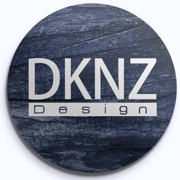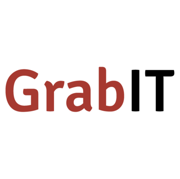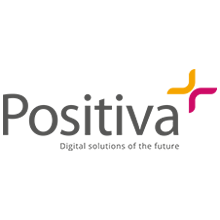
There are 9 Companies in Slovenia
that provide Laravel Development Services!
Slovenia's membership in the EU is and will be a key driver of ICT growth, facilitating increased trade between European markets. Over the next years, the process of EU convergence, which still has far to go, will drive spending on IT projects.
Discover Top IT Companies in Slovenia specialized in Laravel and other related services. Find the best IT service providers for your projects.
Laravel is a popular open-source PHP web application framework used for building web applications and websites. It's known for its elegant and expressive syntax, as well as its rich set of tools and libraries that simplify common web development tasks. Laravel was created by Taylor Otwell and released in 2011, and it has since gained widespread adoption in the PHP development community
Handpicked companies • No obligation to hire • 100% risk-free
Featured Companies in Slovenia
This month, the following Laravel Development companies managed to provide an outstanding service and support. It's worth taking a look.
Explore Top Laravel Development Companies in Slovenia
Since 2007, Devvela has helped businesses that range from daring startups and local brick-and-mortars to Fortune 100 enterprises leverage the power of...
DKNZ Design - E-Commerce | Digital Marketing | Web Development - based in Maribor, Slovenia
We’re a strategy consulting company with core competencies in engaging internet technologies, design, and marketing.
Services:
Creation of websites and online stores. IT services and consulting. Small business advertising. Custom websites and web applications.
Positive solutions of the future
Filter Laravel Development Companies in Slovenia by Cities
Find the right tech company near you or from a specific city. Some of the best companies might be located in smaller cities.
Find more Laravel Development companies around the world
TechBehemoths is the world's most advanced and user-friendly platform to match IT Companies with real clients without hustle.
The IT Industry in Slovenia: Companies, Insights & Data
Slovenia's membership in the EU is and will be a key driver of ICT growth, facilitating increased trade between European markets. Over the coming years, the process of EU convergence, which still has far to go, will drive spending on IT projects. Funds such as the EU Cohesion fund are already providing funding for IT projects related to modernization initiatives in both public and business segments. As the government remains the major investor in ICT in Slovenia
The combined government sector also remains the largest spender on IT products and services, unsurprising, bearing in mind that the state still owns a wide range of companies across sectors like transport, telecoms, oil and gas, and insurance. Despite all the difficulties, the ICT sector in Slovenia is one of the best sectors of the Slovenian economy, especially since a large part of it is focused on exports. The IT Services market in Slovenia is predicted to be worth $528.74 million in 2025, reported to Statista.
Why Work With Slovenian IT Companies
IT companies from Slovenia are relatively new to the market and rely on the already existing infrastructure when providing web & software services and solutions to the local and international markets. Based on a report of the Belgian company ”Wallonia”, Slovenian IT companies managed to implement the newest IT standards and are specialized in the subsector of software development, more than the web, and cloud computing.
The choice is based on local market demand, as 36% of products and services provided by Slovenian IT companies are sold to the government and implemented in the local public sector, which is supposed to increase the digitalization rate of the country overall. Nonetheless, another 64% of IT services are designed for regional export and are considered a part of the regional IT backbone in the western Balkans.
What to Pay Attention to When Working With Slovenian IT Companies
It is important to know that most Slovenian IT companies were at the startup phase in 2013, and this makes them new and probably inexperienced in providing competitive services on the global IT market. However, working with Slovenian IT companies may be an interesting experience after all.
How Reliable Are Slovenian IT Companies
Slovenian IT companies are at an early stage of creating their reputation on the global market. Since not so many IT companies located in Slovenia managed to highlight their performance, it is challenging to relate to how reliable they are. But taking into account that in the XXI century all companies have a chance to create a name for themselves, most probably Slovenian IT companies will manage to break the ice, and why not - make their country an important regional IT hub.
How Well Does the Slovenian IT Industry Relate to the Neighboring Countries?
In the regional background, the Slovenian IT industry is neither a shiny country nor an underdeveloped IT environment. But it is one of the promising destinations for international clients and foreign companies ready to invest or work with Slovenian IT companies, and bring the entire region closer to what the Western European IT industry is.
What is Laravel and what are its benefits for your projects?
Laravel is a popular open-source PHP web application framework used for building web applications and websites. It's known for its elegant and expressive syntax, as well as its rich set of tools and libraries that simplify common web development tasks. Laravel was created by Taylor Otwell and released in 2011, and it has since gained widespread adoption in the PHP development community. Here are the key aspects and features of Laravel:
-
Elegant Syntax
-
MVC Architecture
-
Artisan CLI
-
Database Abstraction
-
Blade Templating Engine
-
Middleware
-
Authentication and Authorization
-
Routing
-
Caching
-
Testing
-
Security
-
Community and Ecosystem.
-
Scalability
When choosing a PHP framework for a project, there are several alternatives to Laravel, each with its strengths and use cases. The choice depends on project requirements, familiarity with the framework, and specific preferences. Here are some notable PHP frameworks that often compete with Laravel:
-
Symfony: Symfony is a high-performance PHP framework known for its flexibility and modularity. It is often used for large, enterprise-level applications. Laravel actually uses several Symfony components under the hood. Symfony provides robust tools for building web applications, APIs, and microservices.
-
Zend Framework (Laminas): Zend Framework, now known as Laminas, is a mature framework that focuses on building scalable and enterprise-grade applications. It provides a collection of reusable components for various tasks, allowing developers to choose and integrate only what they need.
-
CodeIgniter: CodeIgniter is a lightweight and straightforward framework that emphasizes simplicity and speed of development. It's often chosen for smaller projects and rapid application development (RAD). While it has a smaller feature set compared to Laravel, it's known for its minimal learning curve.
-
CakePHP: CakePHP is a full-stack framework that focuses on convention over configuration (CoC). It comes with features like scaffolding, a built-in ORM, and a friendly community. It's known for its simplicity and convention-driven development.
Companies specialized in providing services using Laravel can significantly benefit relevant projects. Their expertise in Laravel development allows them to efficiently create customized web applications that meet specific project requirements. With a deep understanding of Laravel's capabilities, these companies can ensure the project benefits from Laravel's robust features, clean code structure, and security mechanisms.
They expedite development using Laravel's built-in tools and extensive package ecosystem, making them well-suited for both small-scale and enterprise-level applications. Security is a top priority, with specialists implementing best practices to protect against common web vulnerabilities, enhancing the project's safety, especially when dealing with sensitive data.
After the project launch, these specialized companies offer ongoing maintenance and support, addressing issues, applying updates, and ensuring the application's long-term reliability. They also excel in integration with third-party services and technologies, expanding the application's functionality and enhancing the user experience.
In addition, some companies may offer UX and design services, further improving the project's visual appeal and usability. Through rigorous testing and quality assurance, they identify and resolve potential issues before deployment, ensuring the application performs reliably across various devices and browsers.








